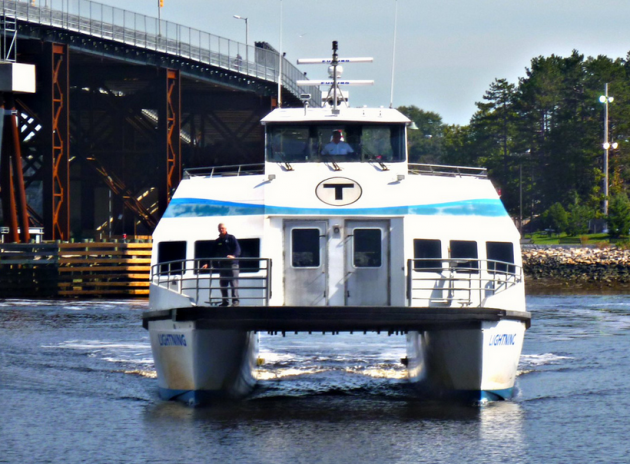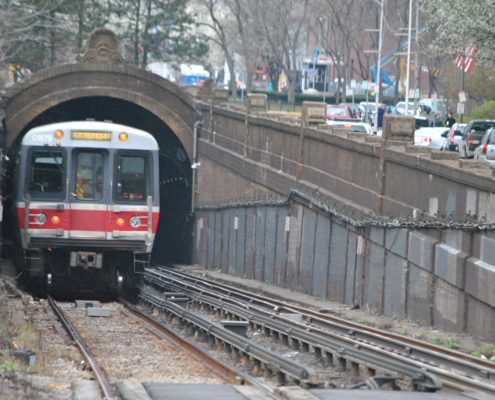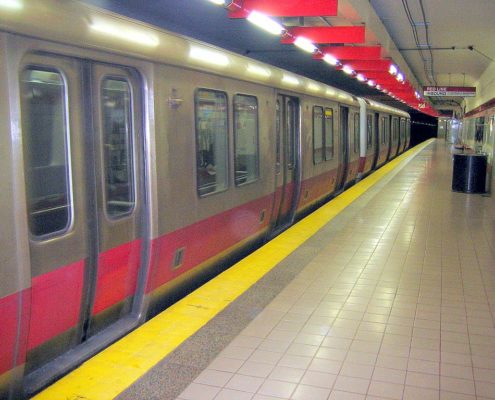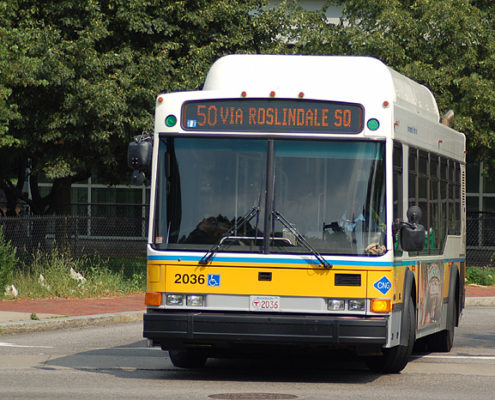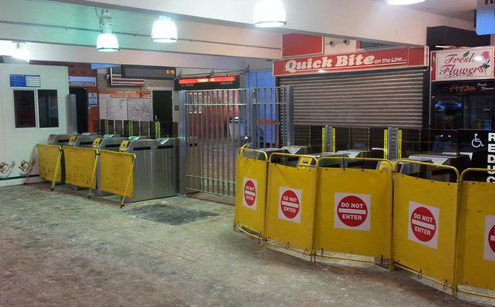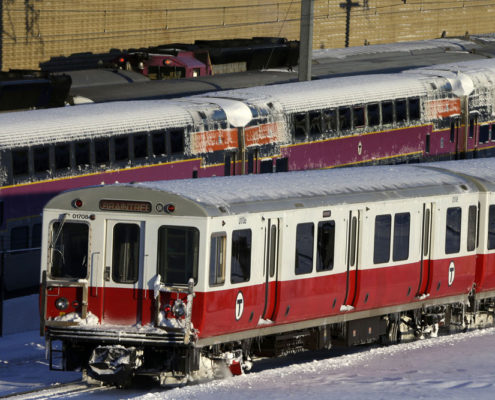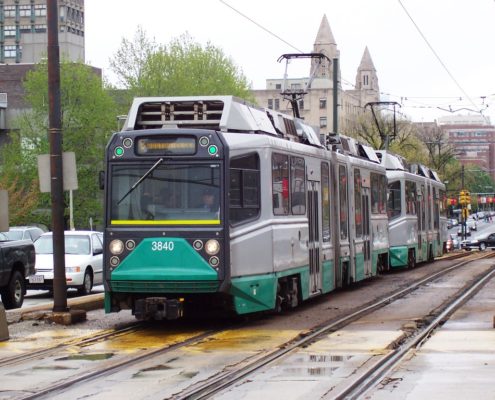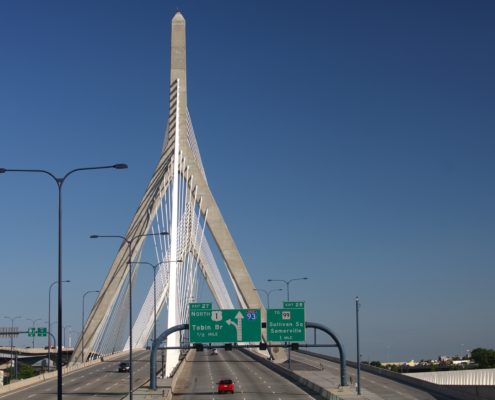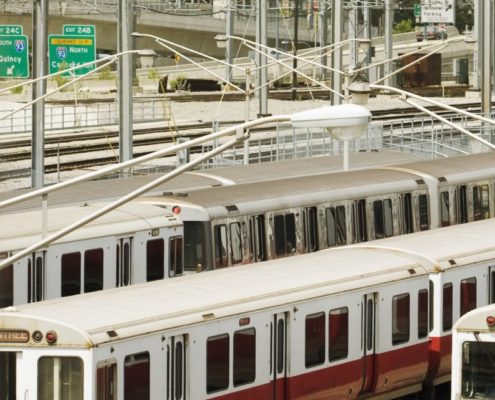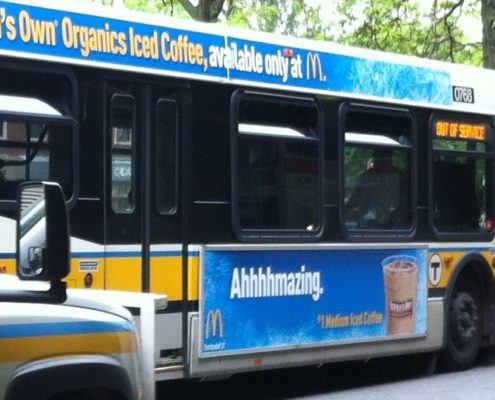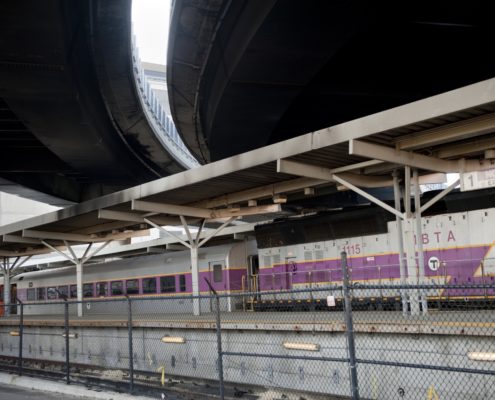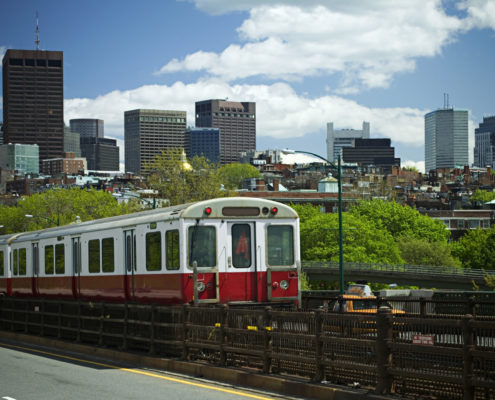Study: Ferry Service Could Provide Opportunity for MBTA Expansion without Huge Upfront Costs
Read press coverage of this report in the Boston Herald: Study suggests MBTA float ferry service expansion and Editorial: “Ferrying off to work“; The Boston Globe: “Look to the harbor to ease Boston’s transportation woes,” “Steady stream of studies fuel transportation debates,” and here; The Boston Business Journal: “Seaport ferry, funded by business, would be open to public“; and State House News Service: “SENATE REPORT ASSERTS PUBLIC DISSATISFIED WITH MASS. TRANSPORTATION“; The Lynn Daily Item: “LYNN FERRY’S FUTURE BUOYED BY REPORT”; and The Salem News: “Our view: Ferry expansion can help ease traffic woes”
Service has low capital costs, is cost effective by a number of measures, and could be an inexpensive channel to address critical transit needs in the region
BOSTON – A comprehensive study of the MBTA ferry service’s performance as a transit mode and how it compares to other ferry operators nationwide offers useful insights for policy discussion on future water transportation in Massachusetts Bay, according to a new study published by Pioneer Institute. The findings suggest additional ferry service could provide an opportunity for the cash-strapped MBTA to expand service without the enormous upfront investment required to extend capital-intensive heavy, light, and/or commuter rail lines.
“Despite relatively high operating expenses by some measures, ferry service is overall quite cost effective compared to other MBTA service modes,” said Pioneer Institute Research Director Greg Sullivan, who co-authored “Is it time to expand water transportation in Greater Boston?” with Pioneer Research and Policy Associate Matthew Blackbourn.
MBTA ferry service makes stops in Hingham, Hull, Charlestown, downtown Boston, and at Logan Airport. The report also explores recent water transportation initiatives in a number of coastal communities on the north and south shores. With over 1.3 million trips per year, the MBTA ferry makes up a small percentage of T ridership—but the service is critical to coastal communities that lack other transit options.
In 2015, the T ferry recovered more of its costs through fares (68 percent) than any other MBTA service mode. It also had the highest fare revenue per passenger mile and per unlinked trip, and was one of the most popular modes among its users. A big reason for its popularity is that the ferry boasts the best on-time performance of any T transit option.
Between 2002 and 2015, ferry service required the least capital investment of any MBTA transit mode. It also required the lowest subsidy per passenger mile—$0.41—second to the commuter rail ($0.38) over the same timeframe, according to analysis that factors in debt service on capital expenses and builds on previous MBTA analysis.
This impressive efficiency comes in spite of having high operating costs by some measures, including several commonly used transit performance metrics. In 2015, ferry service had the highest operating expenses per vehicle mile, revenue hour, and unlinked passenger trip of any MBTA mode. It also had higher operating expenses per passenger mile than the average of all T service modes analyzed.
Blackbourn and Sullivan compared MBTA ferry service to five other ferry operators – the Golden Gate Bridge Highway and Transportation District and San Francisco Bay Area Water Emergency Transportation Authority in the Bay Area; Greater New York City’s Port Imperial Ferry Corporation and BillyBey Ferry Company LLC; and the King County Ferry District in Seattle – that were deemed suitable peers through use of the Integrated National Transit Database Analysis System’s peer selection tool.
MBTA water transportation was relatively cost effective compared to its peers, scoring in the top three out of the six operators on four of six measures, although it ranked last in terms of trips per revenue hour and per revenue mile.
Two of the five peer operators (Port Imperial and BillyBey) are for-profit companies. Among the public operators, the MBTA had the highest fare recovery ratio.
The MBTA has signaled its recognition of water transportation’s potential to reduce congestion and deliver environmental benefits. Despite comprising a tiny percentage of its overall operations, the T’s FY2015-2019 Capital Investment Program dedicates $42 million to ferry service, or about 1 percent of overall capital expenditures.
Gregory W. Sullivan is Pioneer’s Research Director. Prior to joining Pioneer, Sullivan served two five-year terms as Inspector General of the Commonwealth of Massachusetts, and was a 17-year member of the Massachusetts House of Representatives. Greg is a Certified Fraud Investigator, and holds degrees from Harvard College, The Kennedy School of Public Administration, and the Sloan School at MIT.
Matthew Blackbourn is Pioneer’s Research & Policy Associate. He has led projects for PioneerPublic, PioneerOpportunity, and PioneerHealth, and assists with managing the organization’s crowdsourcing initiative, the Better Government Competition. He holds a Bachelor of Arts from Tulane University.
About Pioneer
Pioneer Institute is an independent, non-partisan, privately funded research organization that seeks to improve the quality of life in Massachusetts through civic discourse and intellectually rigorous, data-driven public policy solutions based on free market principles, individual liberty and responsibility, and the ideal of effective, limited and accountable government.
Get Updates on Our Transportation Research
Related posts:

